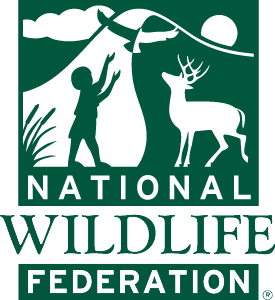In June of 1989, the Village Chief of Port Graham, Alaska, Walter Meganack, prepared a speech for delivery at an Oiled Mayors Conference in Valdez, Alaska. Chief Meganack was too ill to attend the conference, so fellow Port Graham resident, Elenore McMullen, delivered the speech for him. Below is the text of the speech written by Chief Meganack.
The Day the Water Died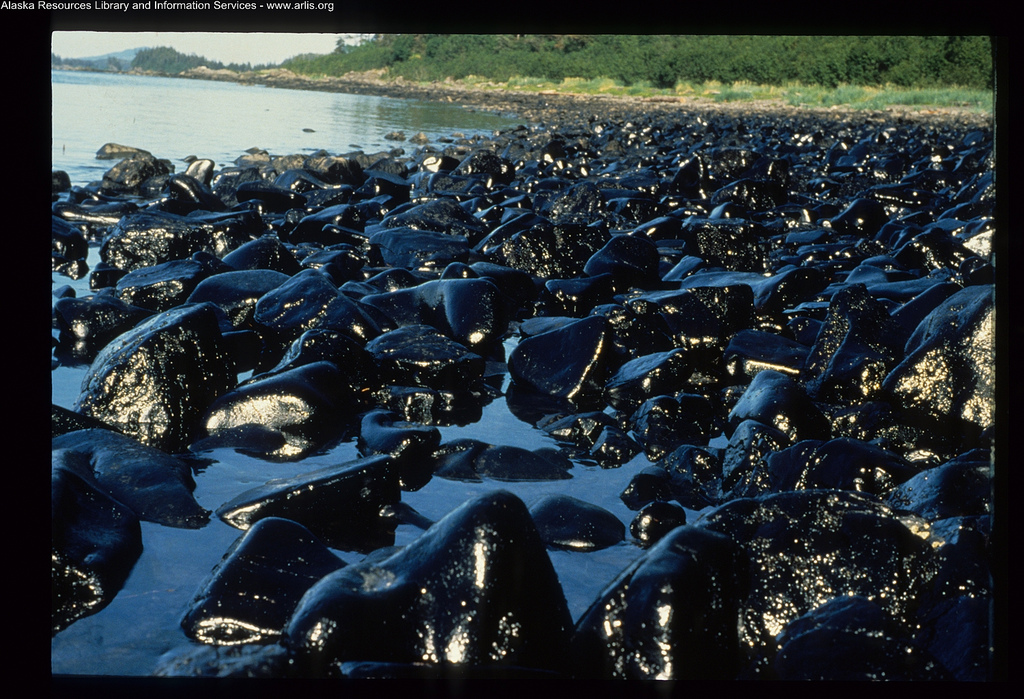
The Native story is a different story from the white man’s story because our lives are different. What we value is different, how we see the water and the land, the plants and the animals is different. What the white man does for sport and recreation and money, we do for life, for the life of our bodies, for the life of our spirit, for the life of our ancient culture. Fishing and hunting and gathering are the rhythms of our tradition, regular daily lifetime, not vacation time, not employment time.
Our lives are rooted in the seasons of God’s creation. Since time immemorial, the lives of Native people harmonized with the rhythm and the cycles of nature. We are a part of nature. We don’t need a calendar or clock to tell us what time it is. The misty green of new buds on the trees tell us, the birds returning from their winter vacation tell us, the daylight tells us.
When the days get longer, we get ready. Boots and boats and nets and gear are prepared for fishing. The winter beaches are not lonely anymore, because our children and the grownups visit the beaches in the springtime, and they gather the abundance of the sea, the shellfish, the snails, the chitons. When the first Salmon is caught, our whole village is excited. It is an annual ritual of mouthwatering and delight. The children are excited, the parents are pleased and proud, the elders smile in their memories of other times in the village.
When our bellies are filled with the fresh new life, then we put up food for the winter. We dry it and smoke and can hundreds of fish to feed a family. The homes have hanging fish alongside hanging laundry. The sights and smells of a village in the spring is the Native way. This is the way the elders taught us, and the elders taught them for thousands of years since the big ice left Alaska. There was no Europe then, no Roman Empire, there were no Jews, no Christians, no Egyptian civilization, but my people were here. The Alaska natives were here celebrating spring and laughing and loving and working and teaching the rhythm of nature, the rhythm of our lives.
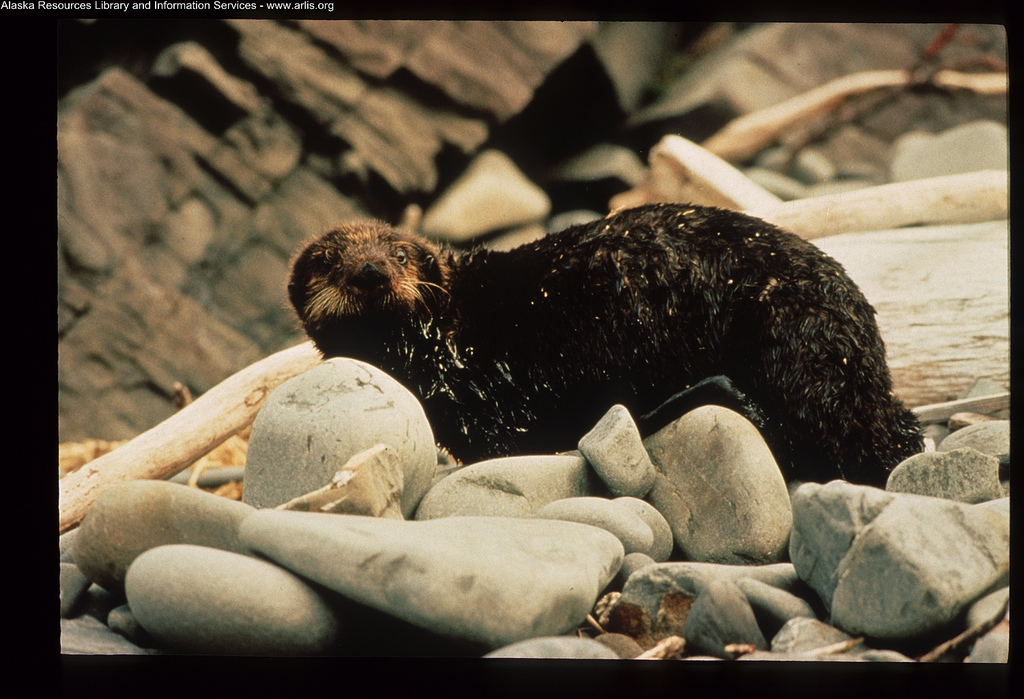 Much has happened to our people in recent centuries. We have toilets now, schools, we have clocks and calendars in our homes. Some of use go to the office in the morning, the children go to school. But sometimes the office is empty and locked, and sometimes the child is late for school because there are more important things to do, like walking the beaches collecting the chitons, watching for the first fish.
Much has happened to our people in recent centuries. We have toilets now, schools, we have clocks and calendars in our homes. Some of use go to the office in the morning, the children go to school. But sometimes the office is empty and locked, and sometimes the child is late for school because there are more important things to do, like walking the beaches collecting the chitons, watching for the first fish.
The roots of our lives grow deep into the water and land. That is who we are. We are like our brothers the bear and the deer. We live on the land and our food is mostly from the water. The bear eats the fish, the deer eats the seaweed, Natives eat all of the life in the sea and the water. The land and the water are our sources of life. The water is sacred. The water is like a baptismal font and its abundance is the holy communion of our lives.
Of all the things that we have lost since non-Natives came to our land, we have never lost our connection with the water. The water is our source of life. So long as the water is alive, the Natives are alive.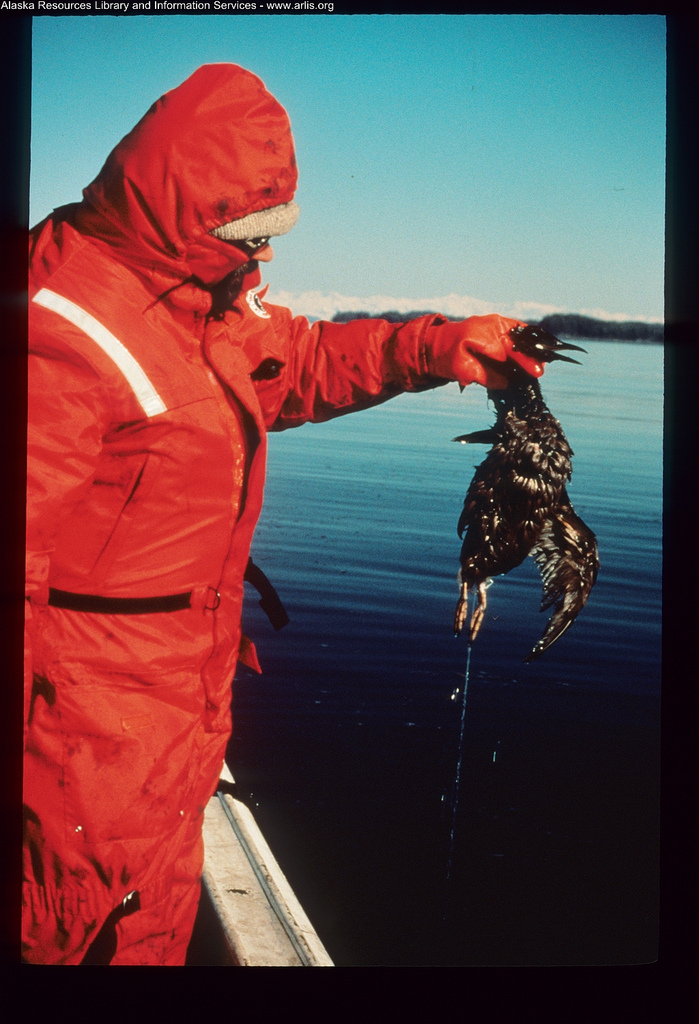
It was early in the springtime, No fish yet, not snails, but the signs were with us. The green was starting, some birds were flying and signing. The excitement of the season had just begun, and then we heard the news, oil in the water, lots of oil killing lots of water. It is too shocking to understand. Never in the millennium of our tradition have we thought it possible for the water to die, but it’s true.
We walked the beaches, but the snails and the barnacles and the chitons are falling off the rocks, dead. We caught our first fish, the annual first fish, the traditional delight of all; but it got sent to the state to be tested for oil. No first fish this year.
We walked the beaches, but instead of gathering life we gathered death: dead birds, dead otters, dead seaweed. Before we have a chance to hold each other and share our tears, our sorrow and our loss, we suffer yet another devastation.
We are invaded by the oil companies offering jobs, high pay, lots of money. We are in shock. We need to clean the oil, get it out of our water, bring death back to life. We are intoxicated with desperation. We don’t have a choice but to take what is offered. So we take the jobs, we take the orders, we take the disruption, we participate in the senseless busywork.
We start fighting. We lose control. We lose trust for each other, we lose control of our daily life. Everybody pushing everyone. We Native people aren’t used to being bossed around. We don’t like it, but now our own people are pointing fingers at us. Everyone wants to be boss. We are not working like a team. We lost control of our village. Our preschool meets in a community center. We shut the preschool down so the oil company can have it. We work for the oil company now. We work for money. The springtime season of our village ways is gone, destroyed.
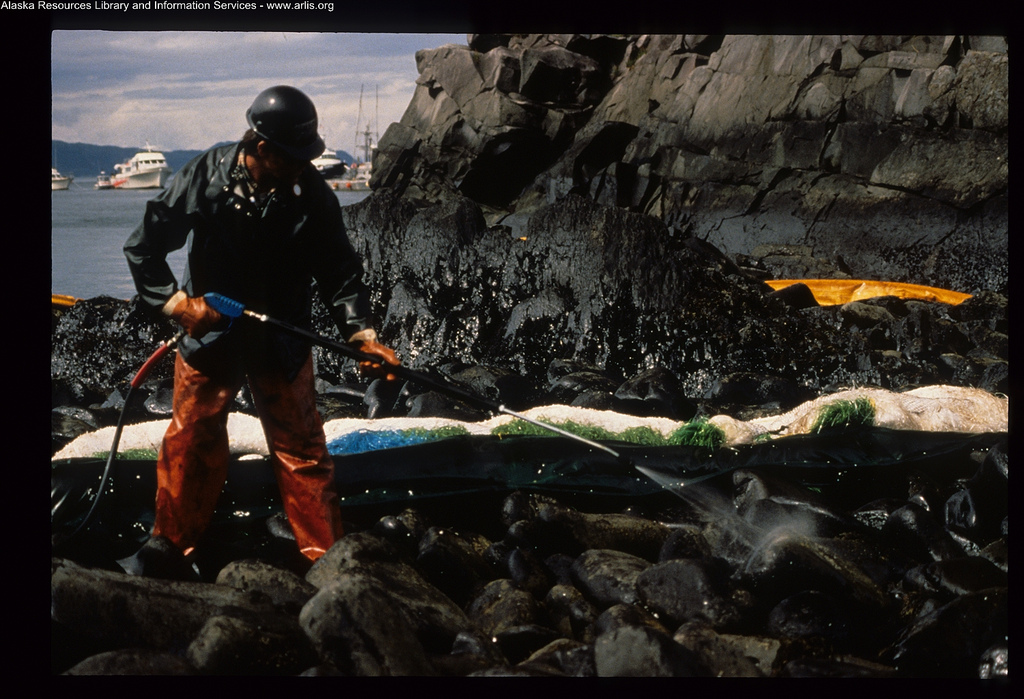 Our people get sick. Elders and children in the village, workers on the beaches, lots of sickness this year; stomachaches, head pain, bad colds. We hardly talk to each other anymore. Everybody is touchy. Everybody is ready to jump on you and blame you. People are angry and afraid, afraid and confused. Our elders feel helpless. They cannot work. They can’t work on the cleanup. They cannot do all the activities of gathering food and preparing for the winter. And most of all, they cannot teach their young ones the native way. How will the children learn the values and the ways if the water is dead? Very afraid if the water is dead. If the water is dead, maybe we are dead, our heritage, our tradition, our ways of life and living and relating to nature and to each other.
Our people get sick. Elders and children in the village, workers on the beaches, lots of sickness this year; stomachaches, head pain, bad colds. We hardly talk to each other anymore. Everybody is touchy. Everybody is ready to jump on you and blame you. People are angry and afraid, afraid and confused. Our elders feel helpless. They cannot work. They can’t work on the cleanup. They cannot do all the activities of gathering food and preparing for the winter. And most of all, they cannot teach their young ones the native way. How will the children learn the values and the ways if the water is dead? Very afraid if the water is dead. If the water is dead, maybe we are dead, our heritage, our tradition, our ways of life and living and relating to nature and to each other.
The oil companies lied about preventing the spill. Now they lie about the cleanup. Our people know what happens on the beaches. 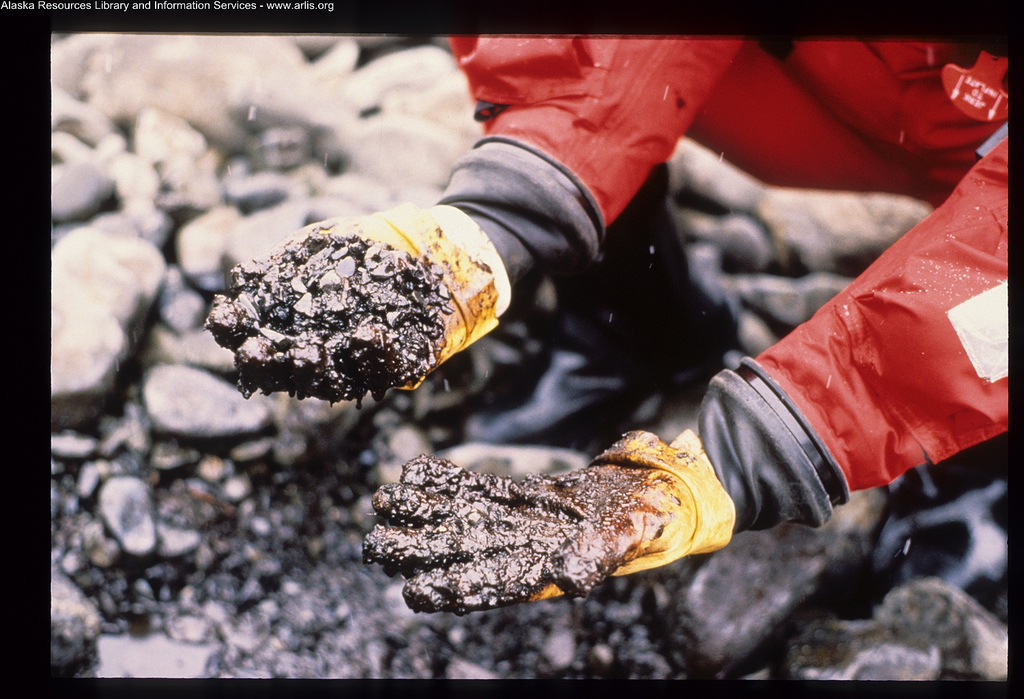 Spend all day cleaning one huge rock and the tide comes in and it’s covered with oil again. Spend a week wiping and spraying the surface, but pick up a rock and there’s four inches of oil underneath.
Spend all day cleaning one huge rock and the tide comes in and it’s covered with oil again. Spend a week wiping and spraying the surface, but pick up a rock and there’s four inches of oil underneath.
Our people know the water and the beaches, but they get told what to do by people who should be asking, not telling. We fight a rich and powerful giant; the oil industry. While at the same time we take orders and a paycheck from it. We are torn in half.
Will it end? After five years maybe we will see some springtime water life again. But will the water and the beaches see us? What will happen to our lives in the next five years? What will happen this fall when the cleaning stops and the money stops? We have lived through such devastations. Our villages were almost destroyed by chicken pox and tuberculosis. We fight the battles of alcohol and drug abuse and we survive.
A wise white man once said, ‘where there is life, there is hope.’ And that is true. But what we see now is death, death not of each other, but of a source of life, the water. We will need much help, much listening in order to live through the long barren season of dead water, a longer winter than ever before.
I am an elder. I am chief. I will not lose hope. I will help my people. We have never lived through this kind of death, but we have lived through lots of other kinds of death. We will learn from the past, we will learn from each other, and we will live. The water is dead, but we are alive, and where there is life there is hope.


